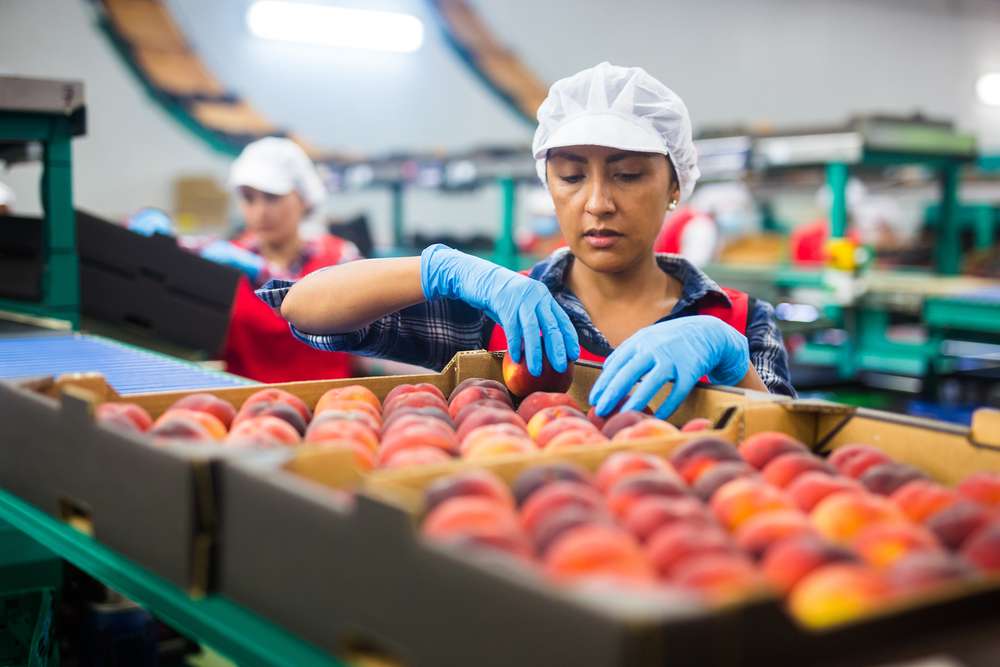Material Handling and Packaging: Essential Processes for Modern Industry
They involve the movement, protection, storage, and control of goods throughout manufacturing, distribution, and retail processes. Proper handling ensures efficiency and safety, while effective packaging preserves product quality and supports branding.

Material handling and packaging represent critical components in today’s industrial landscape, serving as the backbone of efficient supply chains and product presentation. Professionals equipped with specialized packaging training gain valuable skills that impact everything from warehouse operations to consumer marketing. As industries evolve, understanding the intricacies of packaging processes becomes increasingly important for businesses seeking operational excellence and market differentiation.
Optimizing Packaging in Warehouse Environments
Warehouse packaging operations require specialized knowledge to ensure efficiency, safety, and product integrity. Comprehensive packaging training programs address the unique challenges of high-volume environments where speed must be balanced with precision. These programs typically cover material selection, space optimization, and equipment operation to maximize throughput while minimizing waste.
Modern warehouse packaging training emphasizes automation integration, teaching workers to operate alongside robotic systems and conveyor networks. This knowledge helps reduce repetitive motion injuries while increasing processing capacity. Additionally, training covers inventory management systems that track packaging materials and finished goods, ensuring just-in-time availability that prevents costly delays or excess storage requirements.
Environmental considerations have also become central to warehouse packaging training, with modules dedicated to sustainable materials, waste reduction techniques, and compliance with regional disposal regulations. As companies face increasing pressure to reduce their carbon footprint, packaging professionals must understand how to implement eco-friendly solutions without compromising product protection.
Specialized Training for Packaging Cosmetics
The cosmetics industry presents unique packaging challenges that require specialized training beyond general packaging knowledge. Products often contain sensitive formulations that demand particular material compatibility, preservation capabilities, and contamination prevention. Training programs for cosmetic packaging professionals cover regulatory compliance with FDA and international standards, ensuring products maintain stability and safety throughout their shelf life.
Packaging training for cosmetics emphasizes precision filling techniques, especially for products like foundations, serums, and creams that require exact dosing. Professionals learn to operate specialized equipment for various container types, from airless pumps to dropper bottles. This technical knowledge ensures product consistency and prevents costly manufacturing errors.
Beyond functional considerations, cosmetic packaging training addresses the crucial aesthetic elements that influence consumer purchasing decisions. Programs teach design principles that balance brand identity with practical usability, creating packages that not only protect the product but also enhance the user experience through thoughtful details like application mechanisms and closure systems.
Selecting and Working with Cosmetic Packaging Suppliers
Effective packaging training includes guidance on establishing productive relationships with cosmetic packaging suppliers. Professionals learn to evaluate supplier capabilities, quality control processes, and production capacity to ensure reliable partnerships. This knowledge helps companies avoid supply chain disruptions while maintaining consistent packaging quality.
Training programs teach the importance of material specifications when communicating with suppliers, covering everything from plastic resin types to glass composition and metal finishing processes. This technical knowledge allows packaging professionals to clearly articulate requirements and verify that received materials meet necessary standards for product safety and performance.
Supplier management training also addresses collaborative development processes, teaching professionals how to work with vendors on custom packaging solutions. This includes understanding prototyping timelines, tooling requirements, and minimum order quantities that impact both budget and production scheduling. Well-trained packaging professionals can navigate these complexities to develop innovative solutions while managing costs effectively.
Innovative Approaches to Makeup Packaging Design
Makeup packaging training focuses on the intersection of functionality, brand identity, and consumer experience. Programs teach professionals to balance aesthetic considerations with practical requirements like product protection, ease of application, and portability. This specialized knowledge helps companies create distinctive packaging that stands out in a crowded market while meeting consumer expectations.
Training covers material selection for specific makeup products, addressing challenges like preventing lipstick melting, powder breakage, or mascara drying. Professionals learn which plastics, metals, and glass formulations work best for different cosmetic applications, considering factors like chemical compatibility, durability, and visual appeal.
Modern makeup packaging training increasingly incorporates sustainability principles, teaching professionals about biodegradable materials, refillable systems, and packaging reduction strategies. As consumers demand more environmentally responsible options, packaging experts must understand how to implement these solutions without compromising product integrity or brand positioning.
The Role of Packaging in Marketing Strategy
Packaging training extends beyond technical considerations to address marketing impact. Professionals learn how packaging serves as a crucial touchpoint in the consumer journey, communicating brand values and product benefits through visual and tactile elements. This understanding helps companies leverage packaging as a powerful marketing tool rather than merely a functional necessity.
Training programs cover consumer psychology principles that influence packaging perception, from color theory to typography hierarchy. Professionals learn how different packaging elements trigger emotional responses and purchase decisions, allowing them to design more effective solutions that connect with target audiences. This knowledge bridges the gap between marketing objectives and technical execution.
Advanced packaging training addresses emerging technologies like augmented reality integration, NFC tags, and QR codes that extend packaging functionality into digital experiences. As the line between physical and digital marketing blurs, packaging professionals must understand how to incorporate these elements while maintaining production efficiency and cost control.
Cost Considerations in Packaging Training Programs
When evaluating packaging training investments, companies must consider various program options available in the market. Professional development in this specialized field ranges from short workshops to comprehensive certification programs, each with different cost structures and benefits.
| Training Program Type | Provider | Cost Estimation |
|---|---|---|
| Online Self-Paced Certification | Institute of Packaging Professionals | $1,200 - $2,500 |
| In-Person Workshop Series | Packaging School | $3,500 - $5,000 |
| University Certificate Program | Michigan State University | $7,500 - $12,000 |
| Corporate On-Site Training | Package Design Associates | $8,000 - $15,000 per group |
| Individual Mentorship Program | Packaging Consultants International | $4,000 - $6,000 |
Prices, rates, or cost estimates mentioned in this article are based on the latest available information but may change over time. Independent research is advised before making financial decisions.
The return on investment for packaging training typically manifests through improved operational efficiency, reduced material waste, and enhanced market performance. Companies report that well-trained packaging professionals contribute to cost savings through optimized material selection and process improvements, often recouping training investments within 12-18 months through reduced errors and increased productivity.
Material handling and packaging training represents a critical investment for modern industries seeking competitive advantage. From warehouse efficiency to cosmetic product presentation, properly trained professionals contribute significantly to operational excellence and market success. As packaging continues to evolve with technological advances and sustainability demands, ongoing education becomes increasingly valuable for companies across all sectors. The integration of technical knowledge with marketing awareness creates packaging professionals who can balance practical requirements with strategic business objectives, ensuring products reach consumers safely, efficiently, and attractively.




